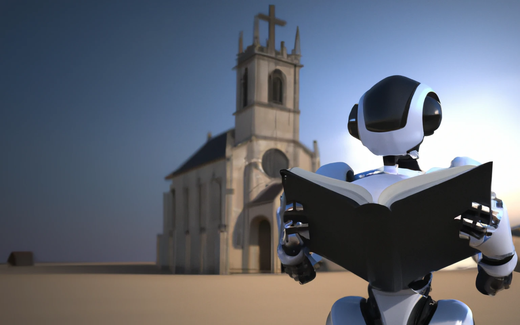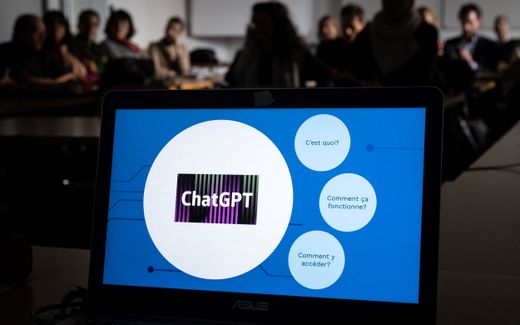How artificial intelligence replaces a preacher

The initiator said to be “curious” about whether it could work and how people would react. He wants to know “whether people have religious, spiritual experiences.” Photo ANP, Roos Koole
Central Europe
For the first time, an artificial intelligence pastor presided over a service. Reactions have been mixed. “It scares me.”
“To persevere in our faith, we must pray regularly, read the Bible and attend church.” That was pretty much the level of the first German church service led by Artificial Intelligence. Although the church was packed, enthusiasm about the content was not very high. Regularly, the ‘preacher’ was drowned out by the laughter of the congregation members, writes Domradio.
The faithful came from Nuremberg, where the annual Protestant Church Congress, or Kirchentag, was held, to neighbouring Fürth. In Saint Paul’s Church, a large screen was set up in front of the believers.
The 29-year-old Jonas Simmerlein, a theologian and a scientific assistant at the University of Vienna instructed the chatbot ChatGPT to write a sermon. He said to be “curious” about whether it could work and how people would react. He wants to know “whether people have religious, spiritual experiences.”
Right at the start, the tone was set. Beforehand, attendees could complete the sentence ‘When I think about the service being led by AI, then...’ via a QR code. Promptly, a response from the audience appeared on the big screen: “... that scares me.”
Futuristic
When the service starts, an American actor fills the screen. Despite several people appearing on the screen, they all have a similar monotonous voice, writes Die Tageszeitung. “The people of Fürth pull out their smartphones and take photos. After all, the church is rarely that futuristic.”
In terms of execution, the service is quite different from a ‘normal’ service. The ‘pastor’ spoke quickly, and the confession of the Lord’s Prayer came somewhat unexpectedly. Subsequently, the service was over before people knew it.
But how was the sermon in its contents? According to Die Tageszeiting, the artificial pastor rattles off the Bible passages. “At this speed, thinking seriously about the individual sentences is difficult. Some exciting sentences are followed by blocks strongly reminiscent of a Wikipedia article read aloud.”
Limits
The response from visitors is divided. “Too fast, too impersonal, never again”, some say. But others find it exciting “how far the AI has come and how much is already possible.” An elderly man says: “I am very reassured because it has become clear where the limits are. AIs can only say what’s on the web, while a real preacher still has his ideas.”
Initiator Simmerlein observes that people make a difference between statements from AI or real persons. While theologian Heinrich Bedford-Strohm received applause for some statements at the opening service, similar statements spoken by AI caused laughter. “Those were statements about justice, for example. Maybe in a way, it was also a helpless laugh because you realise: It somehow makes me uneasy that the AI also says such sentences.”
“For me, it’s an art project,” says Summerlin. He suspects some of these people reject innovations in the Protestant Church. “You all now have the opportunity to form an informed opinion,” says Simmerlein to the people of Fürth. The lively discussions that followed writes Die Tageszeitung, show that this invitation has been accepted.
Related Articles








